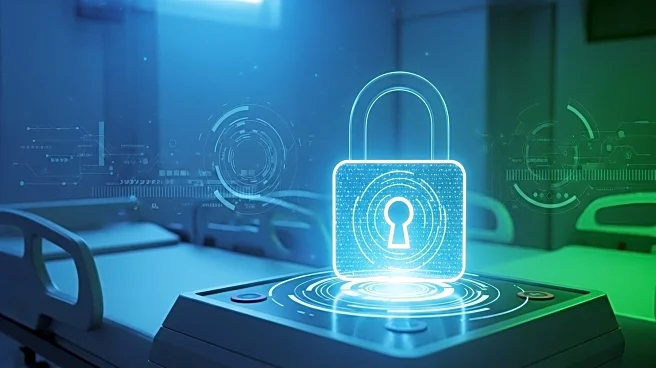What is the story about?
What's Happening?
Healthcare organizations are being encouraged to adopt Certificate Lifecycle Management (CLM) solutions to improve their IT security strategies. CLM is crucial for managing digital certificates, which are essential for securing data, enabling encrypted communication, and authenticating users, devices, and applications. Manual management of these certificates can lead to vulnerabilities such as outages and compliance violations, which can disrupt patient care and delay procedures. Automated CLM solutions help prevent these issues by automating renewals and alerts, thereby ensuring continuous care delivery. Despite budget constraints and perceived complexity, the operational and financial risks of not adopting CLM are significant, including downtime, staff time, reputational damage, and regulatory penalties.
Why It's Important?
The implementation of CLM is vital for healthcare organizations to maintain operational resilience, regulatory compliance, and high-quality patient care. As healthcare IT teams face challenges from legacy systems, compliance demands, and resource shortages, CLM offers a way to lighten the load by automating certificate management processes. This not only improves reliability and security posture but also supports compliance with frameworks like HIPAA and PCI DSS. With the industry evolving rapidly, including changes in TLS certificate renewal requirements and post-quantum cryptography, CLM positions organizations to handle these changes effectively, ensuring they remain ahead of emerging threats.
What's Next?
Healthcare organizations are expected to increasingly adopt CLM solutions to address the rising regulatory pressures and technological changes. As major browser vendors require more frequent TLS certificate renewals starting in 2029, healthcare providers will need to ensure their systems are equipped to handle these updates. Additionally, the growing urgency around post-quantum cryptography will necessitate inventorying and updating cryptographic assets. Organizations that implement CLM will be better positioned to respond quickly to certificate authority errors or compromised keys, enhancing their monitoring and incident response capabilities.
Beyond the Headlines
The adoption of CLM in healthcare not only enhances operational efficiency but also demonstrates a commitment to data protection, building trust with patients and partners. It helps defend against sophisticated cyberattacks, including phishing and man-in-the-middle exploits. By tracking certificate usage patterns and flagging anomalies, CLM supports forensic investigations and ensures long-term infrastructure integrity. As the healthcare sector depends heavily on trust, CLM is a strategic enabler of secure, uninterrupted care.















